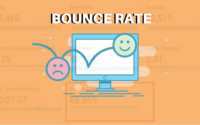301 Redirect Is A Ranking Factor Or Not?
301 redirects are important to when permanently moving an old URL to a new URL. It will give positive user experience by connecting users to the content which they are looking for. But the problem is whether 301 redirects affect rankings in organic search or not. You might be curious to know whether 301 redirect is a ranking factor or not. If yes, this article for you.
What are 301 redirects?

Before entering our topic of 301 redirect is a ranking factor, we should know the fact that what is 301 redirects. It is a server-side redirection and it used for permanently changed URL. There are many usages of 301 redirects also. They are used in,
- When moving from HTTP to HTTPS.
- When moving from an old domain to a new domain.
- When optimizing URL slugs for existing pages and posts.
- When moving to a new website platform and when your pages change from https://example.com/page.html to https://example.com/page/.
When we discuss about 301 redirects, most of times we consider about two things. First one is whether PageRank will transfer from the old URL to the new URL or not. Second one is, the fact that old URL’s inbound links will automatically be applied to new URL.
The Evidence Against, 301 Redirect Is A Ranking Factor
Matt Cutts, the former head of Google’s Webspam team, said in 2012, Google would follow unlimited redirects from one page to another page. Pages can redirect again and again. Though Google can make multiple hops, Googlebot will stop following redirects after four or five hops.
Cutts made a statement again in 2013 and he said there were small percentage of PageRank was lost in 301 redirects. But he didn’t mentioned how much percentage it was. But some SEO professionals had said it was 15%. In 2016, Gary Illyes confirmed that there wouldn’t be any PageRank lose anymore. When John Mueller was asked whether Google would see 100 domains redirected to one as spam in 2018, his answer is given below.
I doubt you’ll get any SEO value out of it, but that’s up to you. For example, if you can use a domain name in an ad campaign to have a memorable URL to display even if it ends up redirecting to your main website.
In 2019, Mueller said that HTTPS was a lightweight ranking factor. He further said that the redirection from HTTP to HTTPS was the closest way to 301 redirects are linked to the ranking factors. In 2020, Mueller said that the possible SEO implications of stringing several 301 redirects together. He further said that redirects can negatively impact on page speed. In the same year, Mueller answered a question, how long does it take Google to rank a new URL instead of an old one that has a 301 redirect. Muller explains as the reply that 301 redirect signals are canonicalized, but Google uses other factors for canonicalization.
He mentioned a previous video where he discusses how Google chooses the right canonical URL. And also he said how Google can help determine preferred destination URLs beyond 301 redirects by updating internal links, sitemaps, and other home page references to point to newly published URLs.
In 2021,
In 2021, Mueller explained how Google chooses a new URL over an old URL without redirecting. Imagine copying content from an old URL to a new URL and not missing any redirect. Google might still be able to select the new URL as canonical because of other signals like internal links and sitemap links.
That same year, Gary Illyes advised that 301 redirects last at least a year, giving Google time to ensure that ranking signals are properly assigned to new URLs. Google regularly updates its advanced SEO documentation and its guide to redirects within Google Search stating that server-side redirects are the best.
It Seems 301 Redirects Are Not A Ranking Factor
301 redirects won’t improve your page rankings. They can ensure that Google and search users are directed to the content that you want them to find. And also they ensure that you don’t lose the ranking signals built into the old URLs when you move them to the new ones. They are essential for proper canonical signaling and accepting ranking signals. There is no official confirmation that 301 redirect is a ranking factor. But it doesn’t mean it is unimportant. Its your duty to handle redirects carefully and avoid technical issues like redirect chains.
Related Posts
Frequently Asked Questions
How do I redirect a page in 301?
If you wanna implement a 301 redirect, you need to place a . htaccess file in your root directory. You can use any text editing tool like Notepad, Sublime and Textedit to create a . htaccess file. If you already have an a . htaccess file, there is no need to create one.
How many 301 redirects can you have?
There are no limits of using 301 redirects on your site. You can implement any amount of 301 redirects without having any penalty. But there is a problem too. Many 301 redirects can put unnecessary load on the server. And also it your page loading speed. You need to try to reduce direct redirects using rules.
Why should I use redirects?
Redirects are important not only visitors but also search engines. It tell search engines about where content has moved and whether the moving is permanent or temporary. This redirecting affects how your pages appear in search results.
Which redirect is best?
The Best redirect is 301 redirect. It is a permanent redirect and it passes full link to the redirected page. The 301 redirect is the best way to implement redirects on a website.
How do you tell if a link is a redirect?
You can use Redirect checker tool to get insight on URL redirect. Firstly enter the domain in the URL field that is given. Next click on the Check Redirection button. Then the results will be displayed on your screen. It will take few seconds. You can see the type of redirect and its URL on your device screen.

Meet Jane Madison, a tech enthusiast with a Bachelor’s degree in Computer Science, and the wordsmith behind the scenes at Creativeoutrank LLC.
Armed with a deep understanding of Computer Science, Jane transforms intricate technological concepts into... Read more


